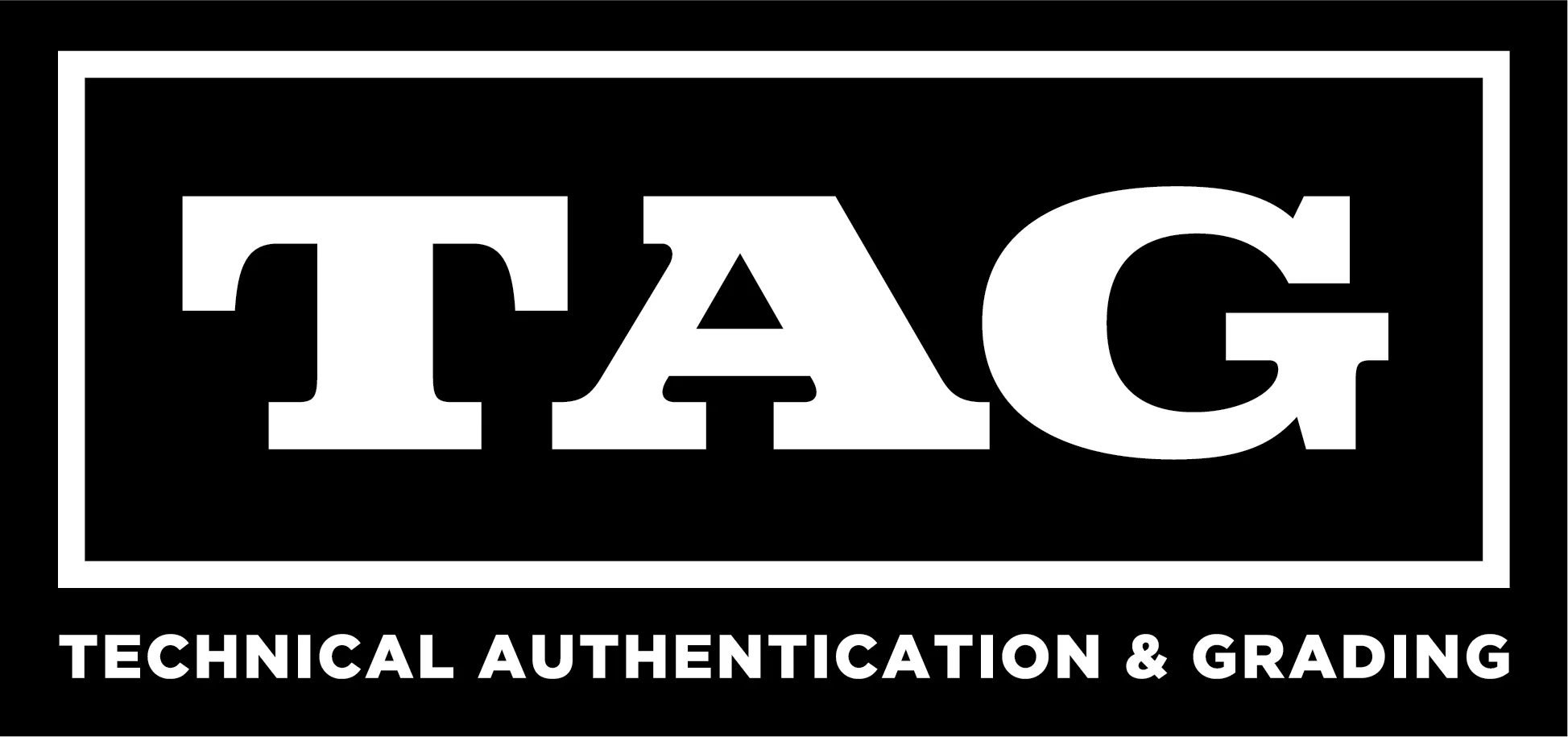TAG (Technical Authentication & Grading) is a relatively new but rapidly emerging force in the card grading industry, founded by Steve Kass. Distinguishing itself from the traditional "human-centric" grading models, TAG's core philosophy revolves around leveraging advanced technology, machine learning, and patented processes to deliver unparalleled transparency, accuracy, and consistency in card assessment. They aim to provide an objective standard for card grading, moving away from perceived subjectivity in the industry.
Company Profile: TAG
TAG's most significant differentiator is its heavily automated, data-driven grading process. Unlike companies that primarily rely on human graders' eyes and experience, TAG employs a multi-patented technological system that utilizes photometric stereoscopic imaging and sophisticated algorithms. This technology scans cards, capturing thousands of data points related to centering, edges, corners, and surface imperfections. These precise measurements and identified defects are then fed into their system, which applies algorithms to generate a highly granular score.
A cornerstone of their approach is the Digital Imaging & Grading (DIG) Report. For every card they grade, TAG provides a comprehensive digital report accessible via a QR code on the slab. This report includes:
- High-resolution images of the raw card and the slab.
- Detailed measurements of attributes like centering (often down to precise percentages like 54.8/45.1).
- Visualizations of identified defects (known as "DINGS" - Defects Identified of Notable Grade Significance).
- A breakdown of scores for each grading category (e.g., surface, corners).
- A "TAG Score" on a 1000-point scale, which provides a more granular understanding of a card's condition beyond the standard 1-10 scale. This allows collectors to differentiate between, for example, a "high 10" and a "low 10."
- Population reports, card rankings, and chronology data.
This level of detail and transparency is virtually unmatched in the industry, allowing collectors to understand precisely why their card received its specific grade.
TAG uses the familiar 1-10 grading scale, but also incorporates a 1000-point internal scoring system that informs that 1-10 grade. Their top-tier grade is a TAG 10 Pristine (990-1000 TAG Score), reserved for cards that are virtually flawless and exceed standard Gem Mint criteria. Below that is the TAG 10 Gem Mint (950-989 TAG Score), which aligns with the industry's high-standard Gem Mint. Their slabs are known for being crystal clear, made from UV and abrasion-resistant acrylic, and feature the card's ID and grade inscribed directly into the slab rather than on a paper label, enhancing security and aesthetics. Each slab also includes "Proof™" anti-counterfeiting technology.
As an up-and-coming company, TAG is actively working to build market trust and improve resale values. Currently, TAG-graded cards are generally gaining traction and selling for more than most other alternative graders, often seeing prices comparable to or approaching SGC and CGC for certain cards, especially in the Pokemon TCG market where they've made significant inroads.
However, for the vast majority of high-value modern sports cards, a PSA 10 (or a BGS 9.5/10) still typically commands a higher premium and offers greater liquidity in the secondary market. The market is slowly adapting to TAG's unique precision and transparent reports, and many informed buyers appreciate the objective data. For cards where absolute top dollar is the primary goal, collectors still lean towards the established market leaders. However, for those looking for a highly accurate and transparent grade for their personal collection or for cards where the market is less rigid, TAG's value proposition is strong.
TAG's claim to fame is its accuracy and consistency, stemming from its machine-based grading process. By removing human subjectivity, they aim to deliver the same grade for the same card every time. Reviews from collectors often highlight this consistency and the confidence derived from the detailed DIG reports. While no system is flawless, TAG's commitment to objective, measurable data points is a significant step towards a more standardized grading process. This can be particularly appealing to collectors who have experienced frustrating inconsistencies with human-graded submissions to other companies.
- Consider your objective: If you prioritize objective, data-driven grading and transparency, TAG is an excellent choice. Their detailed reports are invaluable for understanding your card's condition.
- Ideal for PC cards: For cards destined for your personal collection where protection and precise data are key, TAG offers a compelling package, often with competitive pricing and turnaround times.
- Monitor the market for resale: While growing, TAG's resale market is still developing. If maximizing resale value is your absolute top priority, especially for very high-end modern sports cards, continue to monitor how their values compare to PSA and BGS for specific cards.
- Embrace the technology: Take advantage of the DIG reports! They provide a wealth of information that can educate you about card condition and grading nuances.
- Modern Cards Primarily: Currently, TAG's system is optimized for cards from 1989 and newer, and up to 50pt thickness. They are working on expanding capabilities for vintage cards.
TAG represents a bold step forward in card grading, pushing the industry towards greater transparency and objectivity through technological innovation. It's a company to watch closely as it continues to expand its reach and refine its processes.
